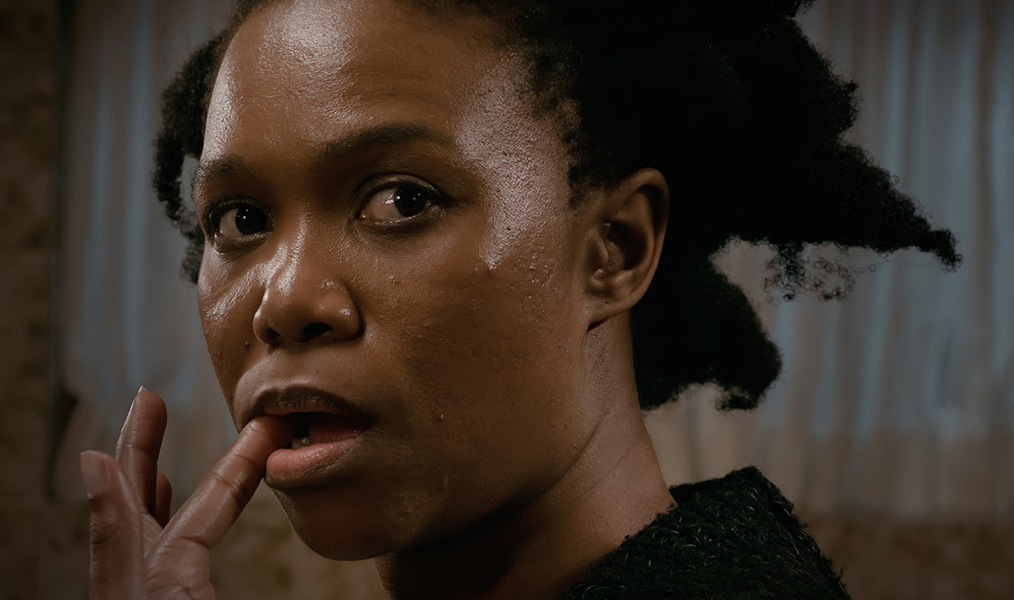Curses only have as much power as people give them, which makes the one in “Mlumgu Wam (Good Madam)” especially potent since colonialism is a damn hard thing to break, though this being a horror film, writer/director Jenna Cato Bass naturally flirts with the idea that the supernatural could be involved. That actually becomes the most rational explanation for Tsidi (Chumisa Cosa) as she sees her mother Mavis (Nosipho Mtebe) sleepwalking at night, going so far as to polish the china even in her off-hours as the housekeeper for Diane, a wealthy white South African woman who now can’t muster up the energy to come downstairs to notice. Although Mavis appears to be under a spell, Tsidi is the one spooked by a sudden run of bad luck, having recently lost her grandmother and angrily storming out of her home when it’s decided by the remaining family she’ll be forced to share it with her brother. Her ex Luthando (Khanyiso Kenqa) can’t be bothered with taking in either her or their daughter Winnie (Kamvalethu Jonas Raziya), leading to the last resort of asking Mavis, who has plenty of room when Diane doesn’t appear to be leaving her bed any time soon, yet is reluctant to let her in.
It could be that Mavis is thinking about the best interests of her family, though she would never let on that she’s thinking about anyone but herself, insisting Tsidi and Winnie follow the rules of the property that her daughter remembers well from previous stays, though her granddaughter has to learn. Staying away from the pool and asking for permission to use the fridge seem like a small price to pay for a roof over their heads, but the necessity of them when the homeowner isn’t even conscious enough to enforce them understandably irks Tsidi and when Winnie starts bringing back pictures of Diane, who she hasn’t even seen in person, as part of a family portrait, the fear strikes that she hasn’t lost just one generation to this insidious notion of servitude, but could easily lose another.
As the opening frames of “Mlumgu Wam (Good Madam)” make clear as Mavis dusts up around the house with every stroke of a feather duster sounding more like a steel sponge, the cleaner it looks, the dirtier it is when Cato Bass envisions the gated Cape Town property as a place apartheid never left. Even in death, Diane is thought to hold power over Mavis when the loss of the job will mean she’ll no longer have a place to stay and while there’s a question that she’ll hang on, there’s none about the chilling effect that centuries’ old power dynamics have, making the fear of questioning it greater than to submit to its ongoing abuse.
Some of Tsidi’s extenuating circumstances that place her at the home even as she grows skeptical might benefit from a little more clarification, but once inside, Cato Bass, acting as the film’s cinematographer in addition to being its writer/director, delivers a sharp psychological thriller where entire cultural attitudes are being probed beyond its characters’ fragile psyches. Laced with inventive sound design throughout to give the film the sensation that it’s unfolding on an active volcano as a rumble continually percolates underneath, silence becomes one of the most frightening elements when no one dares to speak up, but “Mlumgu Wam (Good Madam)” makes clear that Cato Bass’ voice is undeniable.
“Mlumgu Wam (Good Madam)” will screen again at the Toronto Film Festival on September 17th in person at 5 pm at the Cinesphere IMAX Theatre and virtually at 9 pm, available in Canada.




